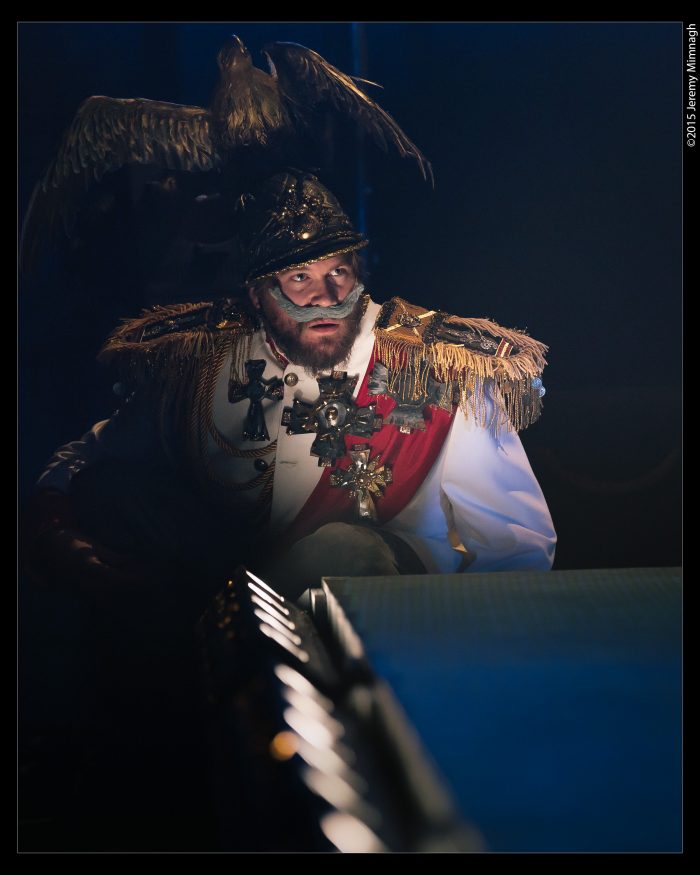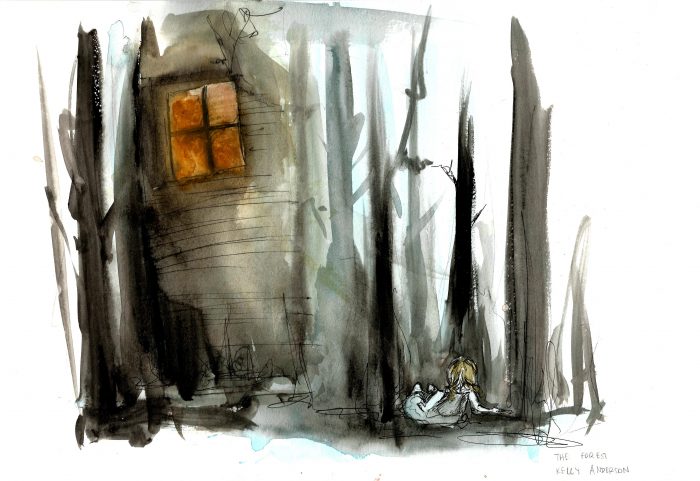Spotlight on Alumni: Kelly Anderson

Kelly Anderson (BA Hons Theatre Studies) graduated from York in 2015 with a specialization in Set and Costume Design, Devised Theatre, and Playwriting. Since then she has worked on twenty productions as a set, costume, lighting, and/or sound designer, and playwright. Highlights include costume design for Theatre By The Bay (Faust); a mixture of set, costume and lighting design for Theatre By Committee (Lion in the Streets, The Winter Play Project, Faith); sound design for theatre company Pearle Harbour Presents (Rebel Without A Cause, Canadian Content-ed, Pearle Harbour’s Sunday School); costume design for webseries pilot Jib & Jab (Kurt Ogilvie); and sound design and composition for Little Black Afro (Carbon: A Workshop Performance). Kelly’s debut play Family Debts was produced as part of Theatre By Committee’s inaugural Winter Play Project.

What attracted you to York in the first place?
The variety of programs and specializations within theatre! A lot of early schooling instills the idea that students have to pick one job. Now graduated, I am thankful that I am not tied down to one discipline. In theatre design—and especially if you’re involved in the production end of seeing those designs to completion—you never know what you’re going to do (tinsmithing, sure! Leatherworking, painting, drafting, of course! Glue-gunning hundreds of tiny foam scales on a makeshift breastplate… maybe!)
I enjoy now that I can flip flop between different design specializations, as well as creating my own work through writing. Devised Theatre also opened up my ideas about movement in theatre and how to tell stories in untraditional, nonlinear ways.
What was the most valuable thing you learned while studying in Theatre at York?
The structure of the design process. I am thankful to my design courses under Shawn Kerwin and Phillip Silver for giving me a strong base for approaching design. Starting a new project can be daunting, but if I follow the pattern of scene breakdowns, research, through to prelims and finals the shows get done in a way that is organized and effective.
You never know what the processes of the people around you will be, but if you have a clear idea of your general process and the information you need then you can finish large projects. I’ve been fortunate enough to work on several large costume design projects since graduation, and when you have 30+ costumes to design, and sometimes build, knowing the stepping stones of your design process is key.

If you had the chance to go back and visit your younger self as you were beginning at York, what advice would you give yourself?
Get better at making phone calls. To be fair, I still can’t make a call without pacing figure eights into my carpet, but such a large part of our industry is communication. A single show means so many emails, definitely a few phone calls when the email chains get too long and twisted, and sometimes even newer forms of communications (Skype, or the superior Google Hangout). Probably the most useful program I’ve found is Google Drive for transferring large sound files.
Ultimately, if you can meet in person, do this. But there will still always be emails, always be phone calls. And imparting succinct information over any form of communication is a necessary skill.
Do you have any advice or tips for York students just about to graduate? about to join the job market?
It’s exciting to get job offers, but only accept as much that allows you to deliver your best. So much of getting future offers are through recommendations.
There will probably be a time where you reach the limit of what you can handle, be it a combination of theatre work, part-time work to make extra money, and “adulting.” That usually means it’s already too late–you’re no longer functioning at your best, and something will suffer (theatre work, work work, food, etc.)
The amount of gigs you pick up is not as important as the quality of work you deliver.
What did you learn in any of your Theatre courses that you’ve used in a non-theatre situation?
I currently work part time at Black Creek Pioneer Village, and my stay at York definitely gave me the confidence that I could pick up new information and skills quickly and effectively.
At Black Creek I work in about ten different historical buildings, learning really awesome skills such as baking in a traditional bake oven, tinsmithing, quilting, and making really big fires. The fires being the most important, of course. I also have to know the 1800s intimately and be able to communicate the social history.
My time in Devised Theatre—making a new theatre piece every few weeks—definitely gave me the experience and confidence to learn quickly.